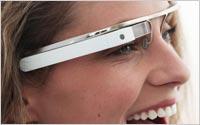
Augmented reality applications face challenges, but at least one research firm remains positive the technology will lead to a bright future.
ABI Research forecasts developers will sink 68%
of budget investments -- about $670 million -- this year into augmented reality applications, rising to $2.5 billion in 2018. In 2013, product enhancement will contribute 22%, and stand-alone apps
will contribute about 10% to the total.
The ability to connect and save information in the cloud continues to support augmented reality, making it one of the fastest-growing emerging media for
advertisers. Through apps, advertisers will have another avenue to connect with consumers. Take coupons.com, for example. In late June, the company launched a cookie app supporting sponsored recipes, with all
information accessed through the cloud.
ABI Senior Analyst Aapo Markkanen explains how Qualcomm introduced cloud recognition capabilities last year, which will bring augmented reality into
the mainstream with consumers.
advertisement
advertisement
Many believe that Google Glass marks the beginning for several industries, but there also are challenges ahead. Markkanen believes Google Glass, like other smart-glass companies such as Epson, will find a variety of
marketers it can support, such as engineering, logistics and health care.
Privacy concerns move to the top of the list when
it comes to challenges. ABC News reports that Rep. Joe Barton (R-Texas) stated his disappointment in the responses received from Google after the Congressional Bipartisan Privacy Caucus sent a
petition and questions to the technology company that address Google Glass privacy policies.
Google recently posted a frequently asked questions section on its site to help those who are interested better understand the technology. The company also
posted the technical specifications to highlight the components inside. The glasses have the ability to search the Internet, take
pictures, launch and run apps, and more.